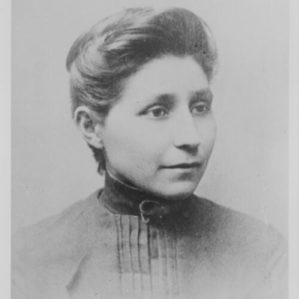Miles:
27
Dr. Susan LaFlesche Picotte Center
Walthill, Nebraska; Thurston County
Born in a tipi in the remote Nebraska Territory during the waning weeks of the Civil War in 1865, Dr. Susan La Flesche Picotte was the youngest child of Chief Joseph La Flesche (Iron Eye), the last formal chief of the Omaha Tribe and his wife Mary (One Woman). Omaha, meaning “to go against the current,” was the name given because the tribe had gone upriver, migrating to the Nebraska Territory. It was fitting attachment for Susan, who would spend her life going “against the current” and in doing so, becoming America’s first Native American physician-and she was a woman!
Susan loved her people. Growing up on the Omaha reservation she not only learned the customs, language, dances and songs, but also saw the poor conditions her people lived in – and the impact it had on their health. She realized that access to adequate medical care was difficult, if not impossible. As a child, she witnessed a sick, elderly native woman die when the local doctor refused to visit her saying, “it was only an Indian, it did not matter.” This defining moment motivated Susan to become a doctor for all people, Indian and white.
A HOSPITAL OF HOPE
For many years Susan had a dream of opening a hospital on the reservation so she wouldn’t have to send her patients to Omaha or Sioux City for surgery. She envisioned wide-open spaces with lots of windows and sunlight. And there would be lilacs. That she was sure of.
The hospital opened as the Memorial Hospital in Walthill. It contained two general wards, five private wards, a maternity ward, and an operating room. It served both natives and whites, without question.
Sadly, Susan’s health was failing and her time practicing at the hospital became more and more limited. While she was unable to work at the hospital. She was able to witness the impact it had on her community. On September 18, 1915, Susan passed away at age 49, having spent most of her too-brief life tirelessly and selflessly serving her Omaha people and other members of the area.
MEDICAL LEGACY
At this time, formal medical training was rare for women and unheard of for Indian women. However, on March 14, 1889, at age 24, Dr. Susan La Flesche Picotte graduated as valedictorian of her medical class from the Woman’s Medical College of Pennsylvania. She could suture wounds, deliver babies and treat diseases, but as woman, she could not vote nor call herself a citizen under American law because she was an Indian.
After graduation Dr. Susan returned to the wind-swept plains of her people and raised awareness about health issues such as good hygiene and food sanitation. She treated tuberculosis, banned communal drinking cups, and insisted on window screens for good ventilation and to keep out disease-carrying flies. These simple changes made a huge difference in the mortality rates of her people.
In her lifetime, Dr. Susan treated over 1,240 patients and sojourned over 1,350 square miles of open prairie – making house calls on her favorite horse, Pie, or by horse-drawn buggy. For poor families, she also provided food, often cooking meals and staying overnight at the homes of critically ill patients.
Looking for resources? Login to view more.
These buttons follow the default direction of each route. You can use the previous button to move in the opposite direction, or edit your team’s settings in the manager dashboard.







